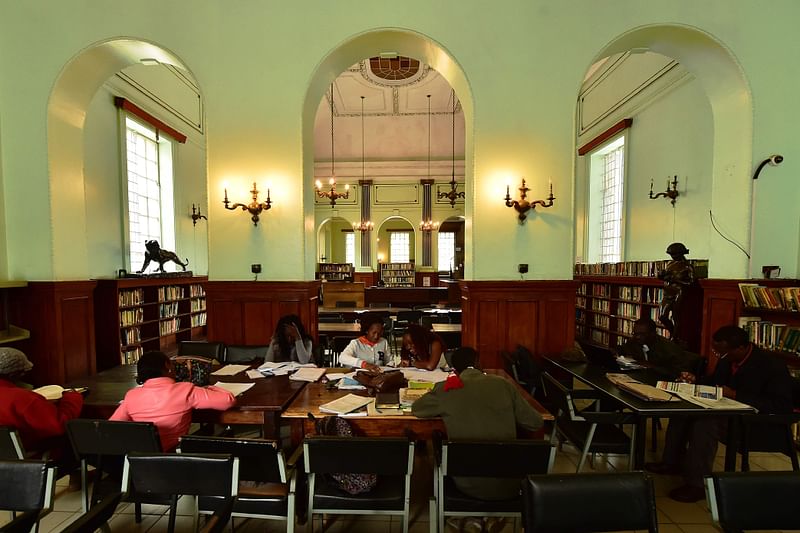Women restore Kenyan libraries' glory

Despite its dilapidated state, a handful of Kenyans still seek out the 1930s neoclassical grandeur of Nairobi's McMillan library, complete with granite columns on its imposing facade.
They are drawn more by the tranquil refuge offered from Nairobi's urban hubbub than for the meagre and chaotic array of books on its shelves.
Soon though, if publisher Angela Wachuka and author Wanjiru Koinange have their way, the faded glory of the past will give way to modern amenities and a renovated space.
The pair is working to restore three Nairobi libraries that have been neglected for decades.
"I refuse to live in a city where children can actually grow up having never entered a library, which is the case of the Nairobi we are living in," Koinange, 32, who grew up in the Kenyan capital, told AFP.
In 2017, the young women launched the "Book Bunk" scheme to modernise the McMillan Memorial Library, situated in Nairobi's buzzing business quarter, as well as the libraries at Makadara and Kaloleni in residential areas of the city.
"The approach for all three libraries is the same -- it is just that the different libraries will target different demographics," said Koinange.
McMillan, the largest, will be general interest while Kaloleni will specialise in children's literature and Makadara will focus on offerings for teenagers.
Despite the rundown state of the Makadara library, located in a 1970s building, it still pulls in 180 young readers a day, which, Koinange said, highlights the demand for literary services.
In a vibrant, built-up city, people also crave the rare peace and quiet.
"I have come to study and the library is calm, there is no noise," said 20-year-old student Caren Mumbua Musembi, as she visited for the first time.
- 'Hard to get the exact books' -
Bernard Ouma Ogutu, an accountancy student at Nairobi's Kenyatta University, whiles away his days in the library.
"It might be hard to get the exact books that you want but... there is sufficient internet that you are able to do your stuff," he said.
There is currently no index of the books or the impressive archive of Kenyan newspapers, and a comprehensive cataloguing exercise is badly needed.
"Access for us, it is not just about people coming in through the doors, it is also about democratising the collection that is here," said Wachuka, 36, who has organised literary events under the Book Bunk brand.
She added that was why it was so important to her to offer a wide range of books.
Two imposing elephant tusks greet visitors to the McMillan, opened in 1931 to commemorate US explorer William Northrup McMillan.
The building mostly contains books from the beginning of the 20th century, well before Kenya's independence in 1963.
Readers can find works on the British aristocracy alongside volumes about the London black cab trade -- but few works by Kenyan authors.
- 'Libraries are where stories live' -
"It is very important to us that we have African authors represented here," said Wachuka, who wants to rejuvenate the collection rather than removing references to white colonialism.
"Book Bunk want to keep that history because it is important -- the building wouldn't be here if it was not for McMillan -- but also mix it with our history," added Koinange, surrounded by piles of books gathering dust in an archive room.
The two Nairobians also want to integrate new forms of media like multimedia collections and podcasts.
The ambitious pair has already secured financial assistance from Nairobi's city council for their Book Bunk project.
"We got an agreement with the government that will allow us to fundraise, manage and restore this building and two more in the eastern part of Nairobi," said the author Koinange.
They also hope to launch an independent fundraising campaign in September to raise an additional 100 million shillings ($1 million, 850,000 euros) for the project, to which they have dedicated five years of their lives.
Wachuka and Koinange's goal is to allow Nairobi's residents to tell and share their own stories.
"The goal is to increase the circulation of stories in the city," said Koinange. "Libraries are where stories live."